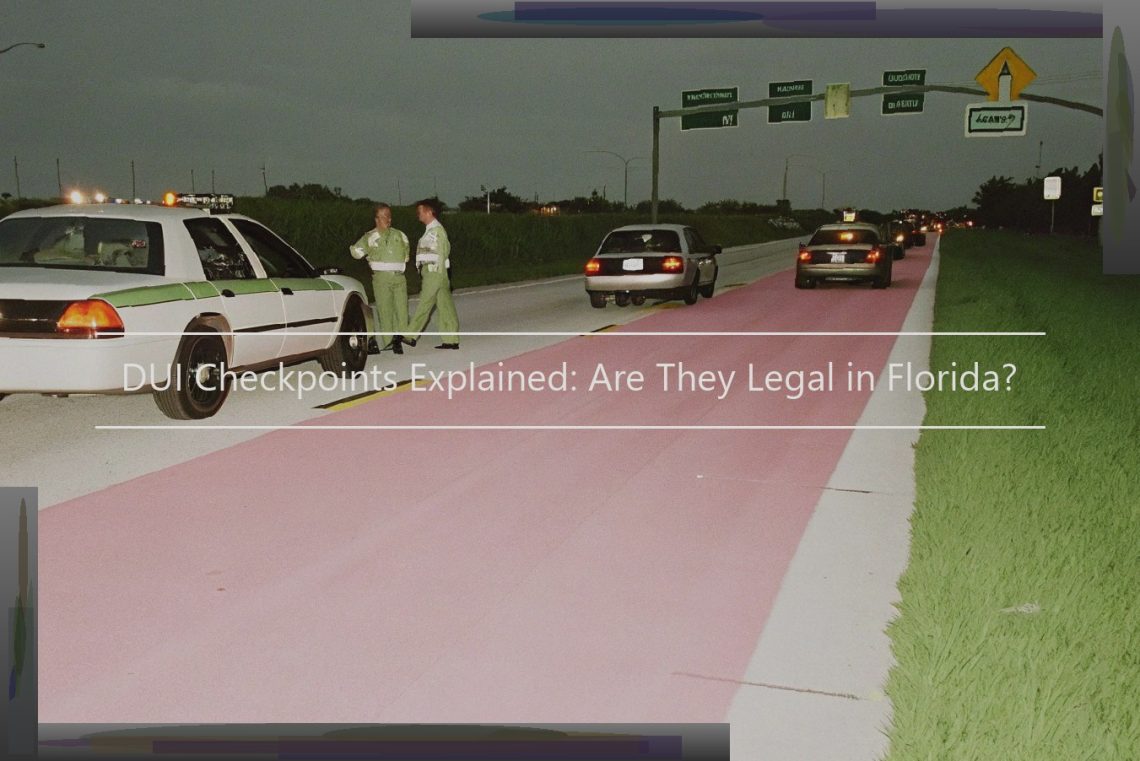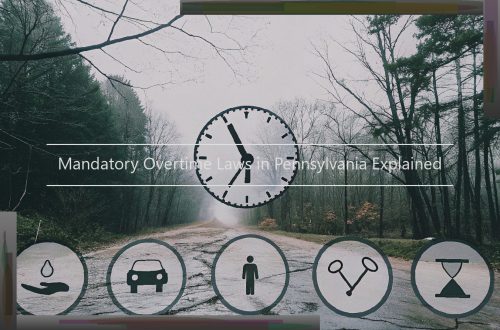
DUI Checkpoints Explained: Are They Legal in Florida?
Legality of DUI Checkpoints in Florida
The legal status of DUI checkpoints in Florida is clear. In 1984, the U.S. Supreme Court upheld the use of DUI sobriety checkpoints in the case of Michigan v. Sitz. Then in 1990, the Florida Supreme Court decided that sobriety checkpoints (also known as road blocks) do not violate Article I, Section 12 of the State Constitution provided that the checkpoint is conducted subject to reasonable guidelines. These checkpoints should be pre-approved by a supervisory official, should be publicly announced in advance , and the primary purpose must be to detect and deter drunk drivers rather than to apprehend wanted persons.
The timing and location of the stops should be determined based on sobriety checkpoint criteria developed by the authorities. Media advisories should be developed, and law enforcement should also inform the public about the checkpoint immediately after it has been completed and the detours have been removed.
An out-of-state driver may seek to have an out-of-state DUI charge dismissed based on the Michigan v. Sitz decision. However, many judges may not grant such a motion based on the search and seizure laws of the State of Florida as explained by the Florida Supreme Court.
How DUI Checkpoints Function in Florida
DUI checkpoints, or sobriety checkpoints as they are often called, are legal in Florida and operate in a specified way. Florida Highway Patrol and local police departments man sobriety checkpoints. Operation of these checkpoints must be in accordance with a set of procedures determined by the Florida Supreme Court. A checkpoint is set up for visibility and is usually a marked checkpoint in a well-lit area. Signs are often posted on roadways directing motorists to the checkpoint and checking for sobriety. Troopers or officers stop each vehicle for a brief period of time. The period of time necessary for determining sobriety should be only a minute or two. The stop is brief so that lengthy delays do not occur, which would interfere with the operation of traffic and undermine public support of the checkpoints. There should be a predetermined interval for stopping vehicles. One example of a periodic method would be to stop every third car. Pre-determined intervals prevent racial profiling and the stigmatization of certain ethnic or racial groups, which is often a criticism of DUI checkpoints. A brief stop is usually sufficient to observe impaired speech patterns and other signs of impairment such as odor of alcohol, glassy bloodshot eyes, and the like. Officers examine drivers and further field sobriety testing may be performed. If there is probable cause of impairment, an arrest is made. Troopers or police officers may exercise extreme caution with some impaired drivers who may attempt to drive away when stopped by the police. In these situations, a supervisor is called to deal with the situation and she or he determines what action to take. Over time, a number of different strategies have been used to prevent fleeing vehicles, including the use of spike belts, and blocking vehicles in with patrol cars. The supervisor determines which strategy will best contain the vehicle. DUI checkpoints must be fairly balanced, unannounced and thoroughly publicized. Troopers and/or police officers must be stationed in close proximity to apprehend fleeing vehicles.
Rights for Drivers at Florida DUI Checkpoints
As long as the officers at the DUI checkpoint follow certain rules, you have few rights. Remember that these DUI checkpoints are simply a preventative measure; they are not an actual arrest or full traffic stop. That means that you cannot refuse a sobriety test or be arrested for being under the influence if you are sober and abiding by all traffic laws. While you have no right to decline taking a sobriety test, you do have the right to remain silent and are not required to answer any questions asked by the authorities at the checkpoint. It is important to remember that while you can be stopped by law enforcement at a DUI checkpoint, you cannot be pulled over without legitimate probable cause for a DUI. DUI stops must be done in uniform and the officers cannot pull you aside unless you are required to do so. The police officer should keep details of the DUI checkpoint very propositional, even at the immediate public road that traffic flows through. However, you should feel free to ask questions pertaining to their cause for stopping you. If there is no real evidence that you are under the influence, you should be free to leave. If it does take place that you are intoxicated, you should know that the administration of field sobriety tests needs to be done in front of a witness (if you ask, they will let you choose one). You can video or record the traffic stop if you want for your records later down the road. Remember what your rights are going into a DUI checkpoint, and you can save yourself a lot of headaches if you ever find yourself in one.
Challenging ARRESTS made at Florida DUI Checkpoints
The first factor in deciding whether a DUI checkpoint stop was lawful is whether there is a legitimate or valid reason for the stop in the first place. A common defense in defending these particular DUI charges is to demonstrate that the law enforcement personnel did not follow constitutional and statutory mandates. It is important for the state to have a plan for the checkpoint. Such a plan must be made available to the public upon request. The plan should detail the location, date and time of the checkpoint as well as the number of vehicles to be stopped. In order for a defendant to be arrested at a checkpoint, the previous actions of the police must conform to the plan. The stops must be of a certain number of vehicles per hour. Random stops cannot be allowed and excessive detention is also prohibited. As alluded to above, another common defense is that the officer who stopped the driver did not have probable cause to effectuate the stop . An officer must have probable cause, or a reasonable suspicion that the motorist has violated a traffic law before stopping the motorist. In addition to defending the stop as noted above, the DUI checkpoint location, time and duration of the stop can also be contested. There are certain requirements for DUI checkpoints established by the state. In order to avoid problems with extending the time of the stop, the officer in charge must erect a visible sign at the entrance of the checkpoint notifying the public that a sobriety checkpoint will be in effect. The officer must also be able to show that warning signs were posted for a reasonable distance before the entrance and exit of the DUI checkpoint. Because successful defenses to a DUI checkpoint stop and related charges can hinge on highly detailed and technical arguments relating to constitutional and statutory mandates, it is imperative that clients seek the legal counsel of the attorneys at Finebloom & Associates to determine the best course of action.
Impact of DUI Checkpoints on Public Safety
Detractors of DUI roadblocks will argue that there is a fine line between the state’s legitimate concern about the health and safety of its citizens, and an unbridled intrusion into the daily lives of those same citizens via the selective and aggressive enforcement of the DUI laws. Recent studies tend to support the position that the number of DUI roadblocks deployed has a direct impact on the number of drunk drivers apprehended, and that DUI roadblocks should be deployed in increase numbers throughout the state . A study of DUI checkpoints in Wisconsin over a period of 18 months resulted in the arrest of 539 drivers (roughly 10% of all vehicles stopped) on DUI charges. Of the 539 arrests 66% showed a blood alcohol level of .10 or above- well above the .08 threshold set by statute for a DUI arrest. 25% of drivers were observed consuming an alcoholic beverage within 2 hours before the checkpoint stop. In recent years the DOT has cited DUI roadblocks as the primary reason that drunk driving crashes have declined sharply. The Department has also cited studies that indicate that 90% of motorists approve of sobriety checkpoints, while only 47% of motorists oppose them.




